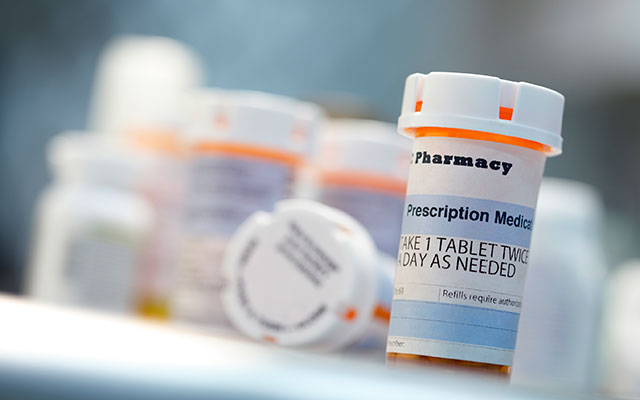Healing After Surgery: Home Recovery Tips
You’ve completed your body recontouring surgery with Dr. Bartell and have been driven home to rest. Once home, however, you may realize you aren’t prepared for the time it will take you to heal properly. To help his patients avoid being in this situation, Dr. Bartell suggests making sure you have the correct medications, items and foods to aid and quicken your process of healing after surgery.
Items You Shouldn’t Be Without
Dr. Bartell highly recommends having certain items on hand before your procedure, which will help immensely while you’re healing after surgery.
- Soft foods such as yogurt, soups and cottage cheese
- More than one ice pack along with towels to wrap them in
- Vitamins
- A non-slip mat for your bathtub
- Stool softeners in case you become constipated from medications
- An extra phone charger – one for your bedroom and the other for another room you are using to recover
- Dr. Bartell’s office phone number
- All medications you were prescribed as well as over the counter pain medications (only those approved by Dr. Bartell)
- Comfortable clothing such as sweaters and sweatpants
- Extra pillows to use around the house
- Plenty of books, movies, video games and magazines
Also remember to get your hair cut, shave, have any medical and dental appointments taken care of in the final few days before your surgery. Also make sure you have someone such as a spouse, family member or neighbor nearby at all times in case you are in need of something at a store, or to take care of any pets or children.
The Importance Of Your Medications
Dr. Bartell will go over your current medication list as well as any medical conditions you may have at your consultation before any surgical procedure is planned. You will be prescribed medication best suited to you for you to have at home after your surgery. Regardless of how fast you heal or how good you are feeling, it is important to complete the courses of any prescribed medication. Sometimes you may need a bit more pain relief in between your prescribed doses, so Dr. Bartell may tell you to have a non-steroidal anti-inflammatory drug such as Ibuprofen at home before your procedure, which reduce pain and swelling. These can be taken as needed, but be sure you only stock up on what Dr. Bartell recommends to avoid any kind of conflicts between medications.
It is extremely paramount to report any type of side effects you may encounter after taking your medication, whether it is your prescribed medication or an over the counter pain reliever. Common side effects are nausea, constipation, diarrhea, drowsiness and dizziness, but there are many, many more to keep an eye out for. Report any kinds to Dr. Bartell’s office right away.

What to Eat and Drink
It’s well known that the phrase “you are what you eat” holds a lot of truth. By snacking on junk food and eating unhealthy meals such as fast food, your body will become sluggish and gain more weight. However, making healthy meal and snack choices daily, along with drinking plenty of water, will cause you to have more energy, look and feel amazing, and will also promote fast and healthy healing. What you consume is extremely important before and after your body recontouring surgery.
Water, Water and More Water
For some, drinking enough water each day can be a struggle. Water is tasteless, and we have grown to love sugary, sweetened drinks with our meals instead of milk or water. We even choose drinks such as Gatorade when exercising or spending too much time in the hot sun, often times completely ignoring the liquid our bodies need to survive.
While healing after surgery it is always recommended to drink plenty of liquids, mostly water. This is due to the amazing healing benefits that come from drinking it on a regular basis. When you consume water, it helps to regulate your body temperature which is important for your body to be able to get essential oxygen and nutrients where they need to be. Without enough water, you become dehydrated, causing many uncomfortable symptoms such as headaches, joint pain, back pain and constipation, all of which can be miserable conditions to have while healing from a major surgery.
Stay Away From Too Many Carbs
For all of our patients healing after surgery, we recommend more of a lighter diet that avoids eating too many bad carbohydrates. When eating any meal or snack, it is ideal to avoid starches and other foods that contain added or refined white sugars. Instead, select food items with natural sugars. Don’t eat fast food, and try to avoid processed foods as much as possible, sticking to fresh fruits and vegetables along with whole grains and beans. Unhealthy foods are high in calories as well as fats, and has a very low amount of actual nutrients your body needs. Consuming carbohydrate-heavy food slows your body down in every way, including digestion and healing.
Snack Often and Eat Less at Meals
Fresh fruits and vegetables are a must for staying healthy and helping your body mend faster. Be sure to include them in every meal, even breakfast. Eat fewer portions during your main meals and keep plenty of carrots, apples, pears and all other kinds of healthy things to munch on in between breakfast, lunch and dinner. It is wise to add nuts, grains and lean meat into your diet as often as possible as well. Eating this healthy will ensure you are receiving the essential proteins, nutrients and amino acids that our body requires, especially while healing.
Also make sure you provide your body with plenty of vitamin C while you’re healing after surgery. It has been proven that vitamin C helps a body heal faster, especially open cuts and surgical sites. Not only oranges and orange juice has vitamin C, by the way! There are many fruits as well as vegetables that are rich in vitamin C, giving you different things to choose from for every meal and snack.
The Best Way to Heal Quickly
It is important to take very good care of yourself after your surgical procedure with Dr. Bartell. He and his staff will send you home with very detailed post surgical instructions, and it is imperative that you follow these instructions carefully. Along with eating healthy and taking your prescribed medications as directed, there are other ways to make your healing process go quickly and smoothly.
- Don’t smoke or drink alcohol
- When you are able to exercise, do so regularly, and only do what you are able to while you heal
- Sleep up to the recommended 8 hours a night
- Make sure that you and your family ensures your house is as germ-free as possible while healing after surgery to avoid any infections in your body
- Keep an eye on your blood pressure and weight
When to Call Your Doctor
After your surgery has been completed, you will be scheduled for one or more follow up appointments so Dr. Bartell can monitor how you are healing after surgery and answer any questions you may have. It is imperative to keep these appointments as well as finish any prescribed medication, regardless of how good you may feel. However, if you are having trouble breathing, bleeding that will not stop, vomiting or diarrhea, or any red swelling or leaking pus around your incision site, be sure to contact our office immediately. Dr. Bartell is always on call for his patients who are recovering from a surgery. “It’s wonderful owning your own practice,” he exclaims, “because you can be there for your patients around the clock. If they call in after hours, they are able to speak directly to their own doctor instead of a random doctor who is unfamiliar with the patient and their case.”
As with any surgical procedure, there can be complications, but as long as you ensure you stay active to the best of your ability, eat proper healthy foods, and take care of yourself after your own surgery, the road to proper healing will be fast and relatively painless.


